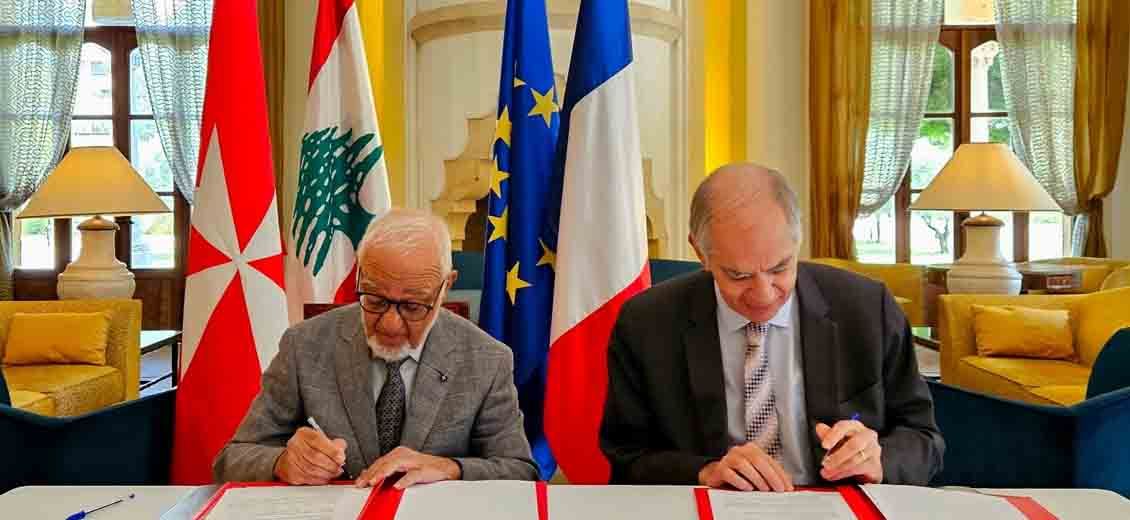
The Knights of Malta association, also known as the Order of Malta, announced that it is preparing to launch a food aid project for Lebanon, with the support of the French Ministry of Europe and Foreign Affairs.
The project is set to start in September 2024 and will run for 16 months, according to a press release issued by the association on Friday. It aims to address the causes and consequences of malnutrition and food insecurity in Lebanon, while building the capacity of affected communities to cope with future crises.
The initiative also plans to target a large segment of the population, reaching over 15,420 direct beneficiaries and 19,240 indirect beneficiaries. It is expected to cover all regions of Lebanon, with a particular focus on the areas most affected by the crisis, as well as the most vulnerable groups.
According to the text, the approach is based on three main areas of intervention:
Firstly, food aid, which includes the distribution of hot meals, breakfasts and snacks through the association’s three mobile community kitchens, in addition to school meals provided to public and semi-private schools.
The second component involves combating malnutrition through nutrition awareness-raising sessions conducted across the association’s network. This includes the distribution of nutrition and specialized kits, as well as a screening service and medical and nutritional follow-up for pregnant and breast-feeding women, and children older than 1,000 days.
The third area of intervention concerns support for local agriculture, particularly for small farmers in the most vulnerable communities.
The association will distribute agroecological kits, provide regular technical support and offer training sessions. This component also aims to support five municipalities in watershed management through agroforestry initiatives, thus contributing to environmental protection and long-term food security.
In this context, an agreement was signed by the French Ambassador to Lebanon, Hervé Magro, and the President of the Knights of Malta, Marwan Sehnaoui.
Magro stressed the importance of this project “to enable the neediest groups to have a decent life during this period of successive crises, guaranteeing them greater autonomy.”
For his part, Sehnaoui expressed his gratitude for France’s support for this project, which “brings hope to the population at a time of great uncertainty for the country.”
The project is set to start in September 2024 and will run for 16 months, according to a press release issued by the association on Friday. It aims to address the causes and consequences of malnutrition and food insecurity in Lebanon, while building the capacity of affected communities to cope with future crises.
The initiative also plans to target a large segment of the population, reaching over 15,420 direct beneficiaries and 19,240 indirect beneficiaries. It is expected to cover all regions of Lebanon, with a particular focus on the areas most affected by the crisis, as well as the most vulnerable groups.
According to the text, the approach is based on three main areas of intervention:
Firstly, food aid, which includes the distribution of hot meals, breakfasts and snacks through the association’s three mobile community kitchens, in addition to school meals provided to public and semi-private schools.
The second component involves combating malnutrition through nutrition awareness-raising sessions conducted across the association’s network. This includes the distribution of nutrition and specialized kits, as well as a screening service and medical and nutritional follow-up for pregnant and breast-feeding women, and children older than 1,000 days.
The third area of intervention concerns support for local agriculture, particularly for small farmers in the most vulnerable communities.
The association will distribute agroecological kits, provide regular technical support and offer training sessions. This component also aims to support five municipalities in watershed management through agroforestry initiatives, thus contributing to environmental protection and long-term food security.
In this context, an agreement was signed by the French Ambassador to Lebanon, Hervé Magro, and the President of the Knights of Malta, Marwan Sehnaoui.
Magro stressed the importance of this project “to enable the neediest groups to have a decent life during this period of successive crises, guaranteeing them greater autonomy.”
For his part, Sehnaoui expressed his gratitude for France’s support for this project, which “brings hope to the population at a time of great uncertainty for the country.”
Read more



Comments